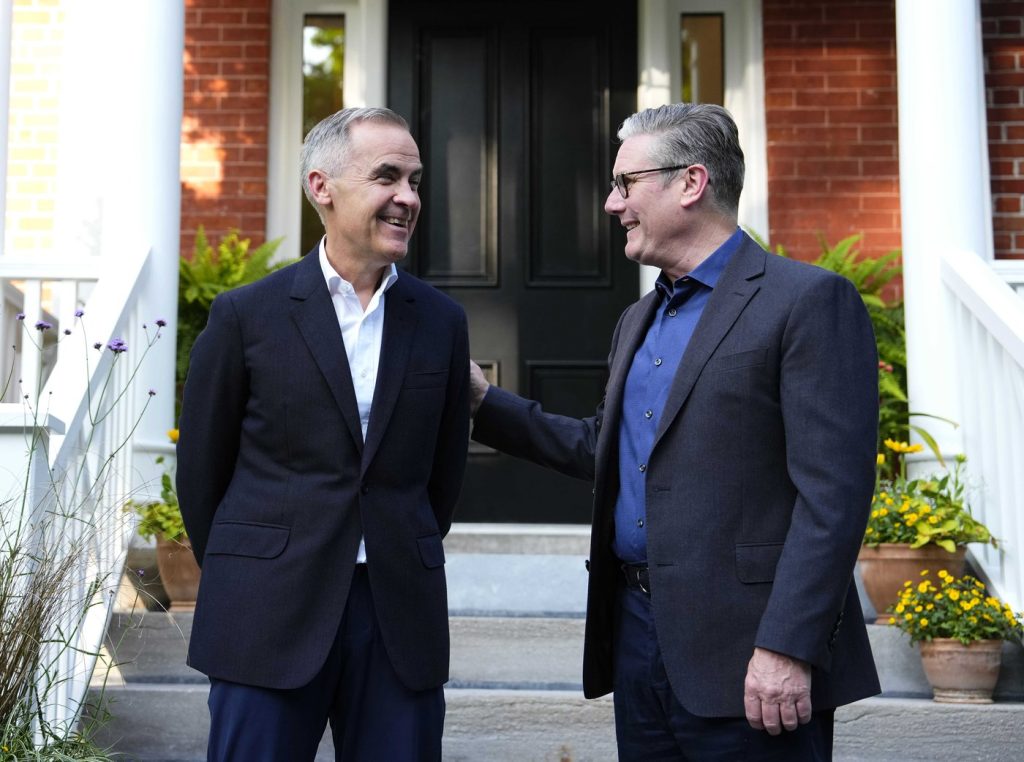‘A national security emergency:’ expert weighs in on ‘Freedom Rally’ protests
Posted Feb 12, 2022 09:04:00 PM.
As demonstrations against COVID-19 mandates continue across the country, a national security expert is raising concerns about the dangers posed by the so-called 'Freedom Rally' protesters.
Wesley Wark, a national security expert, says the ongoing demonstrations have become a “national security emergency.”
“It has become a federal problem, as much as the federal government would clearly have loved to have passed the buck to the municipal or the provincial authorities and let it be their problem.” Wark told the Rob Snow Show on Saturday, February 12. “But, it's the federal government's problem because of the scale of the impact the protest has had in various parts of the country, in particular, it's economic impact and, frankly, it's lawlessness. The federal government has as responsibility to enforce federal law.”
The federal government does have an Emergencies Act, passed in 1988, which has never been invoked – and Wark doesn't think it could actually be used to bring an end to the protests at this point.
“There is a part of the Emergencies Act that deals with public-security emergencies, which I think the protest has clearly become, but the problem is that it's old, unpopular legislation that has never been modernized, never been talked about with Canadians and never been explained to Canadians,” said Wark, who is also the visiting research professor at the University of Ottawa Graduate School of Public and International Affairs. “In theory, it's usable, maybe. In practice, because it's been sort of left at the side of federal legislation as an embarrassment, I don't think it can be really brought into play at this stage.
“What I call for is the need for amending legislations that could be passed rapidly through Parliament. I think with the consent of all major parties, that would designate critical infrastructure protection as a national priority.”
Wark says, if that were to happen, it would become a federal responsibility to enact enforcement powers to end any reckless interference with critical infrastructure.
Another danger, Wark says, is what he conceives as anti-democratic views being expressed by protesters.
“People may have a different perspective on that, but I think those who, like myself, believe that need to say so very very clearly.”
That clarity is something Wark feels the public has not been seeing from political leaders.
“This is not an ability that, certainly at the provincial or federal level, politicians have been very good at expressing,” he said. “They are looking to kind of cover both sides of the story by appearing empathetic to the protesters while attempting to dismiss their views, and I think that just creates confusion in the public mind about where our political leaders actually stand on this protest.”
Wark says while we can talk about the dangers posed by the views of many of the protesters and how they express those views, there are very real practical dangers as well, like illegally blocking critical trade links.
“They (protesters) are dangerous from all kinds of perspectives,” said Wark. “But, principally, because of the damage that they are doing at the protests sites, to the lives of ordinary Canadians, to the functioning of our critical infrastructure. And this is very noticeable, of course, with regard to the effort to try and block border crossings at various parts of the country, including the Ambassador Bridge, which is really a critical trade link.”
Another issue is the lack of a coherent message from the 'Freedom Convoy,' as Wark says that has been muddied from the start.
“It was quite specifically focused on a protest with regard to the imposition of a vaccine mandate for truckers who might be crossing the Canada-U.S. border, not truckers moving within Canada, but those crossing the Canada-U.S. border. Of course, that vaccine mandate was both a Canadian and U.S. policy, so they were protesting a joint policy, which in itself didn't make much sense.”
Wark says, since then, the protest has morphed into something completely different, attracting a diverse camp of individuals and embracing some very noxious views.
“We've seen Confederate flag raising, waving anti-Semitic symbols, swastikas and so on,” Wark said. “But perhaps what combines all of these diverse views is simply the belief that they are in the right and they should have the right to force a change of government policy.”








